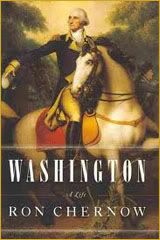The German Nationality
 |
I've been a contributor at the American Indian website called Bad Eagle for a while. I recently stopped participating since it looks like the site is going through some kind of overhaul. I think material is inadvertently getting lost over there. I spent some time researching many of the entries I made, all for the sake of defending my arguments, so, I am recuperating them, and I will post some of them on my blog from time to time.
Some of the more fascinating posts had to do with nationhood, national boundaries and national identity.
I was intrigued, due to a rather contentious German poster (the site was really an attempt to invite an international membership), at what made the German character. Besides referring to my own previous studies on German film (pre-WWII, from the early 1920s to the brilliant propaganda films by Leni Riefenstahl), I read several books on German history to figure it out.
Here is my analysis of the German national identity (the German character). The post is slightly edited.
-----------------------------------------
The passive-aggressive duality of the German character
[The Holy Roman Empire Emperors] were selected by Germanic Principalities, but their ultimate confirmation was by Rome. The lack of a national cohesiveness by the Principalities also led them to select "German" rulers many of whom were not at all German, and who ruled from as far away as Spain. This further exacerbated the lack of national unity, since these Habsburgs, etc. didn't really care about the "country" as much as ruling it.
Until the forced cohesion of Bismarck, who set off a huge (the first ever, I think) welfare state to appease the Germans, and bring them up to par with each other, the region wasn't even given a proper name - it was an extension of the "glorious past" before the invading barbarian tribes: The Holy Roman Empire. But this very Roman connection had them in handcuffs, so to speak. Even their rulers weren't authenticated until Rome said so. England France, and even much smaller countries such as the "Lowlands" had formed clear, independent nations by then.
So how did these states really survive?
Germans lived in their small towns and provinces, building their safe, secure and stable communities, following authority and educating their young men. But, they were "reined in" by: authority, busyness (all those things they made in their regional and village workshops), and training and taming their young men to be proper leaders and not follow their ancestral barbarian inclinations. They were passive, and civilized, until they were unleashed (reclaiming their untamed past?).
I don't think it was the German people per se who expanded, or wished to expand, their territories, but rather their ambitious rulers. Many of their rulers were imports, ruling from a distance (usually another land), so it was in the nature of these rulers to expand these, and any, territories. Of course, it was the German people who were at the forefront of wars and battles their distant leaders concocted.
The German people just passively obliged. For example, the power struggle between the Catholic south and the Protestant north, although religious, was also fiercely territorial. Some 30% of the German population was decimated, and the Germanic territory considerably reduced, while other nations - France, Holland, Sweden, etc... - made much big gains as a direct result of this war. It is surprising that the Germans obliged to fight in these interminable wars, but history shows that their character was a duality of passive, stable "countrymen", and followers of ruthless rulers, even out to war. A passive and aggressive trait - the aggression part easily manipulated.
Think of Hitler. He was using this German passive-aggressive duality, this German temperament coupled with a strict adherence to authority (as seen from the Popes, to the Rome-elected foreign Kings, to Bismarck's paternalism) to get them to do what he wanted. In a way, that is how they've always been treated, and how they've always behaved.
Germans were in their land without "owning" it, so any impostor like Hitler, any ruler, Pope and other patriarch could come and have his say. Like I said, Germans didn't yet "know" who they were as a nation, and this gap was filled a little more with Hitler, who came along only a few short 50 years after the 1871 formation of the nation. This seems to be the story of Germany, even from as far back as the formation of European nations, to the pre-War years, and later the two World Wars.














